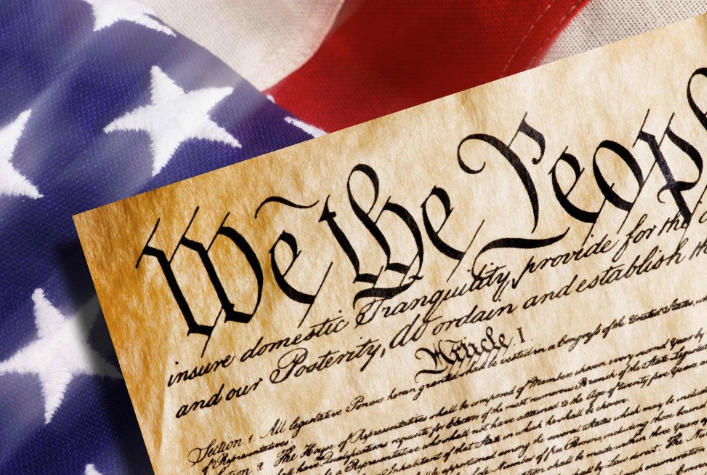By David L. Hudson, Jr.
A Colorado rule prohibiting lawyers from referring to individuals during a legal process with language exhibiting bias or animus on the basis of sexual orientation does not violate the First Amendment, the state’s high court has ruled. The ruling came in the case of an attorney who was disciplined for calling a judge a “gay, fat, fag.”
In October 2015, Michelle and Gary Bales hired Robert E. Abrams to represent them in a dispute with Joseph Hewitt, a contractor they hired to build a garage. Abrams filed a lawsuit on behalf of the Baleses in the matter. In March, Abrams and his associate, Nicoli Pento, attended a case management conference before the presiding judge. Abrams felt the judge was hostile to him. Abrams decided to waive the Bales’ jury demand because he feared the judge would yell at him in front of the jury.
A week later, Abrams explained in an email his decision to the Baleses that the contractor claimed the Bales had made threats against him. The Baleses asked whether the contractor had any proof of such alleged threats. Abrams responded with the following email:
“He tried too [sic], but his evidence was irrelevant, therefore disregarded by the court, which caused your case to be dismissed. While I was getting your case dismissed (Hewitt’s defamation case against you) I was getting yelled at by Fatso. That judge is a gay, fat, fag, now it’s out there.”
Eventually, the attorney-client relationship between Abrams and the Baleses soured, and the couple did not want to pay the legal fees for the work done by Abrams’ associate Pento, who they learned was an attorney licensed in Florida but not Colorado. In September 2017, Abrams withdrew his representation, and later filed suit to collect his fees from the Baleses.
The Baleses contacted the Office of Attorney Regulation Counsel (OARC) and complained about Abrams’ billing. They also informed the agency about the email with the anti-gay slur that Abrams had sent.
In May 2019, the OARC filed a complaint with the Office of the Presiding Discipline Judge (ODJ), alleging that Abrams violated Colorado Rule of Professional Conduct 8.4(g) for using the anti-gay slur. This rule provides that:
“It is professional misconduct for a lawyer to engage in conduct, in the representation of a client, that exhibits or is intended to appeal to or engender bias against a person on account of that person’s race, gender, religion, national origin, disability, age, sexual orientation, or socioeconomic status, whether that counsel is directed to other counsel, court personnel, witnesses, parties, judges, judicial officers, or any persons involved in the legal process.”
The ODJ also alleged that Abrams violated rules prohibiting excessive fees and a failure to communicate with his clients.
During a hearing, Abrams argued he could not have violated Rule 8.4(g) unless the OARC could demonstrate he actually harbored an anti-gay bias. A hearing board agreed with the OARC. The PDJ allowed testimony from Pento that Abrams regularly used anti-gay slurs.
The hearing board ultimately found that Abrams violated Rule 8.4(g) and the rule against excessive fees. Abrams law license was suspended for three months, though that was stayed pending an 18-month probation period. Abrams also had to attend ethics school, and had to attend eight hours of cultural awareness and sensitivity training.
Abrams then appealed to the Colorado Supreme Court, contending that Rule 8.4(g) violates the First Amendment. He argued that the provision was both too broad and too vague. The state high court disagreed in In Re Abrams, finding that the rule “serves the state’s compelling interests in regulating the conduct of attorneys during the representation of their clients and other participants in the legal process from harassment and discrimination, and eliminating expressions of bias from the legal profession.”
Regarding Abrams’ claim that the rule was broad, the high court disagreed and characterized the rule as narrowly tailored. “The Rule does not extend to any speech that legitimately furthers a client’s interest or relates to the advocacy of policy or political goals, no matter how controversial,” the court wrote. “Further, so long as a lawyer refrains from discriminatory language, [the rule] does not prohibit the criticism of judicial officers.” The state high court also noted that since the rule’s adoption in 1993, only four other lawyers have been disciplined under it.
Regarding vagueness, the court determined that “[a]ny objective person would find that Abrams’s specific use of an anti-gay slur in communicating with his clients about the presiding judge violated [the rule].”
The court concluded that the rule “is neither overbroad nor vague” but “is a constitutionally permissible regulation of an attorney’s conduct as an officer of the court in the representation of a client.”
David L. Hudson, Jr. is an assistant professor of law at Belmont University College of Law, and the author of First Amendment: Freedom of Speech (2012). He is also a legal fellow at First Amendment Watch.
Tags


